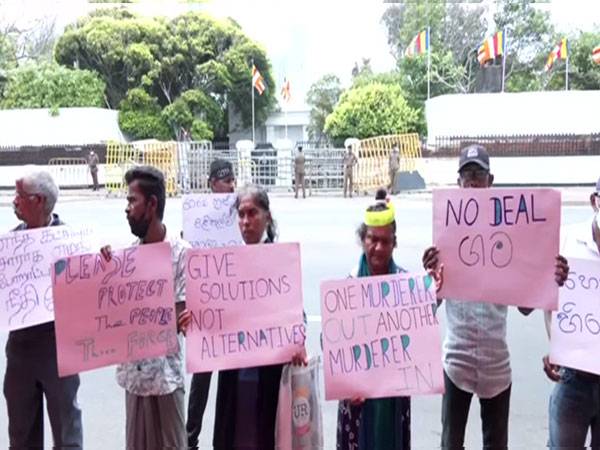Protestors are demanding the arrest of former PM Mahinda Rajapaksa for the alleged attack on protestors outside the Prime Minister’s residence, reports Ashoke Raj
The anti-government protestors in Sri Lanka established a new protest site at the temple trees near the residence of the Prime Minister of the country to rally against the alleged political deal made between President Gotabaya Rajapaksa and newly appointed premier Ranil Wickremesinghe.
Protests in Sri Lanka have continued virtually unabated even as Mahinda Rajapaksa resigned on Monday, followed by the appointment of Ranil Wickremesinghe as the new Prime Minister of the economically devastated Island nation on Thursday.
On Monday, pro-government groups clashed with anti-government protestors outside the residence of the country’s Prime Minister resulting in hundreds getting injured. The clashes led to widespread violent incidents throughout the country, with people burning down the houses of several lawmakers and prominent people including former Prime Minister Mahinda Rajapaksa.

Protestors are now demanding the arrest of former PM Mahinda Rajapaksa for the alleged attack on protestors on Monday outside the Prime Minister’s residence, which led to the largely peaceful protests turning violent across the Island.
“We do not trust Ranil Wickremesinghe as he is a family member and a very good friend of the Rajapaksa family, we never believe that he will do justice to the people, however, he has a chance to prove that he can do it (justice) to the people by arresting Rajapaksa and all these accused, if he does not take action against Rajapaksa, he will never let him do his job,” Wimal Jayasuriya a protestor outside the PM’s residence told ANI.
“We want peace in the country, good economic stability of our country we don’t like party-politics at the moment, everybody wants justice,” another protestor said.
Sri Lanka is facing its worst economic crisis since independence with food and fuel shortages, soaring prices and power cuts affecting a large number of the citizens, resulting in massive protests over the government’s handling of the situation.
The recession is attributed to foreign exchange shortages caused by a fall in tourism during the COVID-19 pandemic, as well as reckless economic policies including the government’s last year’s move to ban chemical fertilizers in a bid to make Sri Lanka’s agriculture “100 per cent organic”.
Due to an acute shortage of foreign exchange, Sri Lanka recently defaulted on the entirety of its foreign debt amounting to about USD 51 billion.
The economic situation led to huge protests with demands for the resignation of Prime Minister Mahinda Rajapaksa and President Gotabaya Rajapaksa, with the former finally succumbing to public pressure and resigning on Monday, soon after the protests outside the Prime Minister’s residence turned violent. (ANI)

Leave a Reply